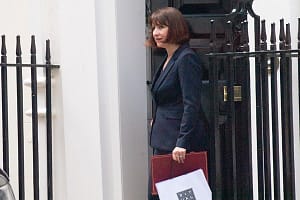On the night that the Occupy London movement lost its appeal to halt eviction, business secretary Vince Cable went head to head with one of the protestors in a panel debate organized by Oasis Charities.
The topic of the debate was “making capitalism responsible” and the business secretary insisted that the three areas that need drastic reforms are banking, pay and taxation.
“We have had big rewards for failure given to people at the top in companies, banks especially. People in the banking sector made complex institutions in pursuit of high returns, greed if you like,” said Cable.
The business secretary insisted that UK’s reliance on banking should be reduced by concentrating on manufacturing, creative industries, higher education and professional services.
Cable then quoted examples of how capitalism has uplifted countries like India and China and said that ethical capitalism is good for businesses.
“I worked at Shell and believed even in a multinational oil firm it was possible to combine ethics and capitalism.”
Following his speech, Richard Paton from the Occupy movement spoke about the “99 per cent versus 1 per cent” argument.
“’The government is attempting to put investment banks in padded cells without sedating them,” said Paton.
Paton argued that the government should make no delay in putting a “more fairer, moral and responsible” system so that the people don’t bear the brunt of mistakes made by investment banks.
To this, Cable said that that the protestors were absolutely right to point out that those who caused the financial crisis have not paid the price while ordinary people have suffered.
Next up was Sir Stuart Etherington, CEO of National Council for Voluntary Organisations. His point was that “capitalism must be part of a much wider, balanced morality”.
“We mustn’t ignore the inability of regulators to understand the extent of companies leveraging power,” he siad.
Etherington argued that rating agencies like Standard & Poor failed to reprimand financial instiutions when they made overtly complex instiutions. “I think rating agencies by law should be made non-profit so that they give you a just and fair sense of what financial institutions are worthy of,” said Etherington.
The debate ended with Cable admitting that although “ethical capitalism” or “moral capitalism” is an oxy-moron, it can help in sorting out the debt the UK is facing today.





Leave a Comment